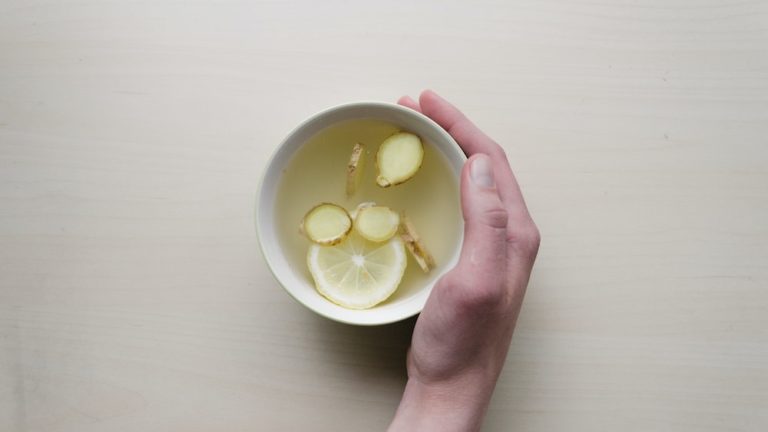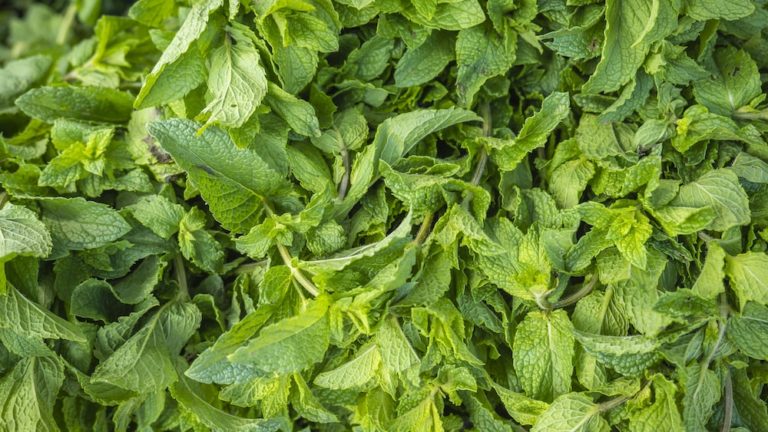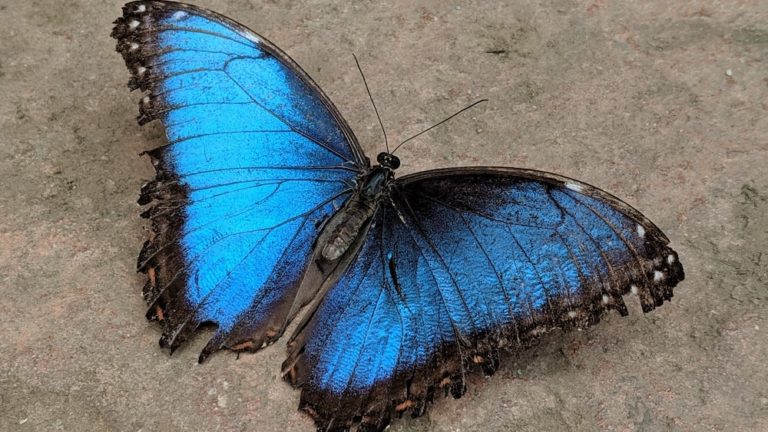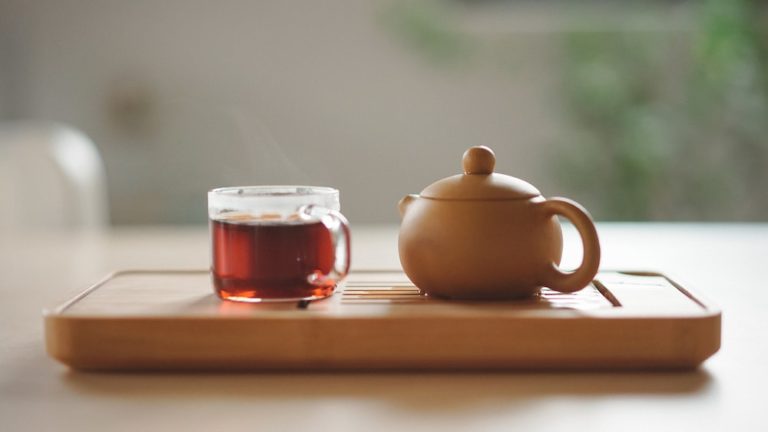Understanding The Potential Kukicha Twig Tea Side Effects

Understanding The Potential Kukicha Twig Tea Side Effects
When it comes to exploring the enchanting world of teas, the journey is as sprawling as a mystic forest resplendent with mysteries and wonders. Among the leafy trails, we stumble upon kukicha twig tea, a variety that whispers tales of traditional Japanese tea ceremonies with its delicate flavor. But as every rose has its thorns, every tea has its quirks. Today, we’re doing a little bit of exploring into the kukicha twig tea side effects, taking a peek into the shadows of this otherwise luminous potion. This dive isn’t about scaring you away but making sure you’re sipping with all the lights on, aware of both its petals and its prickles.
Key Points:
- Kukicha twig tea is a Japanese tea made from twigs and stems, offering a unique flavor profile.
- It is rich in minerals, polyphenols, and has lower caffeine content compared to regular green tea.
- Health benefits include antioxidant properties that combat oxidative stress, potential blood sugar level moderation, and possible cancer prevention effects.
- Side effects may include caffeine sensitivity, medication interactions, impact on iron absorption, allergic reactions, and caffeine toxicity risks.
- Recommended dosages suggest starting with one cup a day and gradually increasing, with pregnant women and those with caffeine sensitivity advised to proceed with caution.
- Tips for minimizing side effects include balanced consumption, monitoring your body’s reactions, and consulting healthcare professionals if needed.
Tea enthusiasts and health-conscious individuals alike, gather round! We’re embarking on a delightful yet insightful expedition through the groves of green tea, zeroing in on the twiggy variety that’s caught our curiosity. As we navigate through this forest of information, we aim to equip you with a basketful of knowledge, making sure that your tea-sipping experience is as enriching and safe as can be. Through the thickets of flavor and the underbrush of nutritional profiles, let’s get to the root of what makes kukicha twig tea both fascinating and, for some, a beverage to sip with a bit of caution.
In a realm where health benefits glisten like dewdrops, side effects can sometimes lurk in the shadows like mischievous sprites, ready to spring up on the unwary traveler. Our mission? To shine a lantern on them, rendering them harmless with the power of awareness. By the end of this article, you’ll be adept not only at navigating these woods of kukicha twig tea but also at relishing its every sip with enlightened enjoyment and prudent precaution.
What is Kukicha Twig Tea?
Kukicha twig tea might sound like it belongs in a witch’s brew, but in reality, it’s as enchanting as a fairy’s potion, minus the need for a magic wand. At its core, kukicha is a Japanese tea made not from leaves but from the twigs and stems of the tea plant. Embracing a unique preparation method, it offers a distinct flavor profile that sets it apart from its green tea cousins, earning it a special place in both traditional ceremonies and modern mug collections. As we delve deeper, let’s unfold the tapestry of kukicha, revealing the very threads of its inception and allure. [1]
Origins and Production
The tale of kukicha twig tea begins in the lush landscapes of Japan, where it sprouted from a blend of ingenuity and resourcefulness. Crafted from the twigs, stems, and stems of the tea plant, kukicha is the epitome of zero-waste philosophy long before the concept became a modern trend. This variety of green tea finds its roots in the meticulous Japanese tea practices, reflecting a deep appreciation for all parts of the tea plant.
The artistry behind kukicha’s production lies in its careful selection and aging process. After tea leaves are plucked, the remaining twigs and stems are collected, sorted, and sometimes aged to develop their flavor. This unique preparation and aging process imparts to kukicha a milder flavor and lower caffeine content compared to its leafy counterparts, making it both a distinct and desirable option among tea connoisseurs and those sensitive to caffeine’s effects.
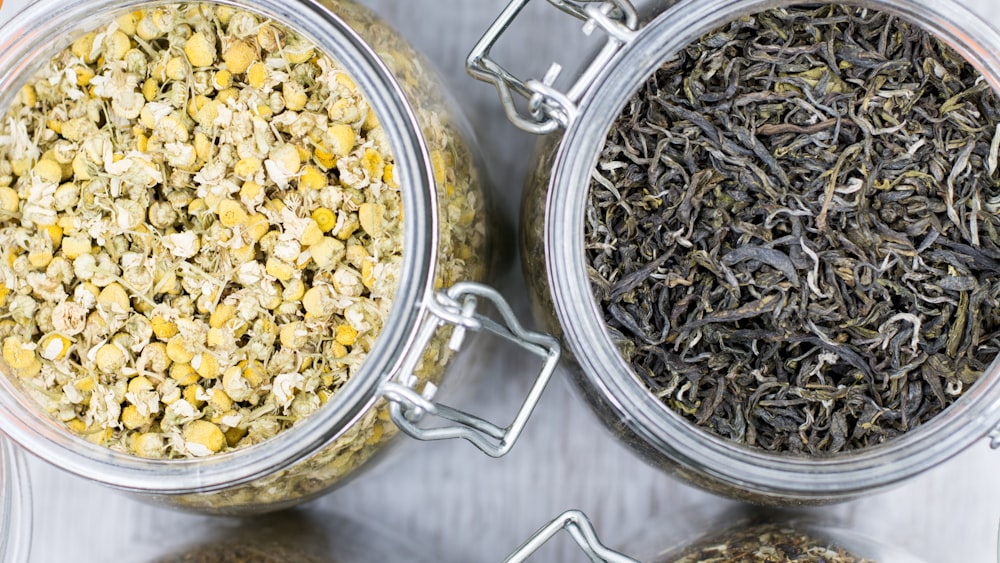
Crafted from the tea plant’s twigs and stems, kukicha embodies a zero-waste philosophy and offers a milder flavor with lower caffeine, appealing to tea enthusiasts and those seeking a gentler option.
Key Components and Nutritional Profile
Kukicha twig tea isn’t just unique in its origins and production; it’s also a treasure trove of nutritional goodness. Packed with minerals, polyphenols, and a hint of caffeine, kukicha offers a symphony of health benefits in every cup. Its nutritional profile is as unique as its creation, distinguishing it from other teas with its rich content of minerals like calcium and fluoride, beneficial for bones and dental health respectively.
Moreover, the presence of polyphenols in kukicha, especially epigallocatechin gallate (EGCG), adds to its repertoire of health-giving properties. These compounds are not only antioxidants but also players in the theater of bodily health, contributing to reduced inflammation and aiding in the prevention of chronic diseases. Polyphenols give kukicha twig tea its characteristically subtle bitterness, while the array of minerals contributes to its nurturing essence, making every sip a step towards well-being.
Reported Health Benefits of Kukicha Twig Tea
Embarking on the journey of exploring kukicha twig tea, it’s like discovering a hidden glade filled with sparkling streams and flowering health benefits. Drinking this unique tea is akin to bathing in a forest pool under the gentle gaze of health-enhancing stars. From its antioxidant properties that dance like fireflies to its gentle nudge towards balanced blood sugar levels – each aspect of kukicha is a petal in the bloom of overall wellness.
Antioxidant Properties
In the realm of health and well-being, antioxidants are akin to valiant knights battling the dragons of oxidative stress and cellular damage. Kukicha twig tea, with its trove of polyphenols, stands as a bastion against these unseen foes. A research study conducted on mice and published in the National Institutes of Health database illuminated kukicha’s prowess in bolstering the body’s antioxidant defenses, showcasing its potential in combating oxidative stress. The presence of catechins and epigallocatechin gallate in kukicha equips it with the ability to scavenge free radicals, safeguarding cells from damage and mitigating the march of aging.
Impact on Blood Sugar Levels
Navigating the waves of blood sugar levels can often feel like sailing a temperamental sea. Kukicha twig tea emerges as a lighthouse for maintaining glycemic harmony. Studies indicate that the catechins and other polyphenolic compounds in kukicha can assist in moderating blood sugar spikes, acting as gentle oars that help steer the body towards a state of balanced glucose levels. This attribute of kukicha makes it a valuable ally for those wading through the waters of metabolic health, offering a sip of stability in the fluctuating tides of glucose in the bloodstream. [2]
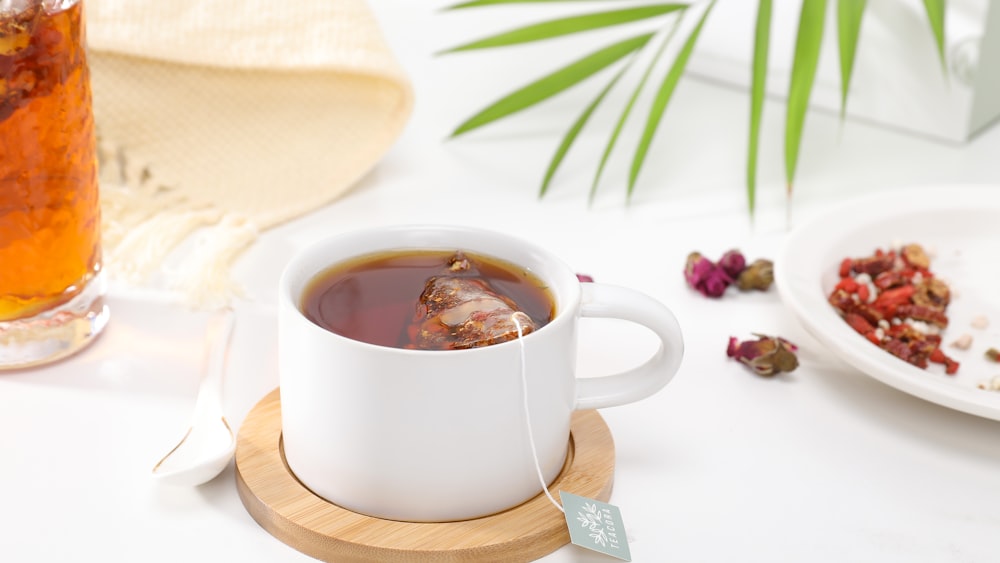
Potential in Cancer Prevention
The quest for cancer prevention catalysts is a noble venture, and kukicha twig tea, with its arsenal of antioxidants and polyphenols, ventures forth as a potential companion in this journey. Through the lens of research, particularly studies on mice, the epigallocatechin gallate (EGCG) in kukicha has shown promising effects in hindering cancer cell growth and proliferation. This interaction between kukicha’s polyphenolic content and the nefarious machinations of cancer cells underscores the tea’s potential role in the narrative of cancer prevention. While human studies are necessary to fully understand and confirm these effects, kukicha stands as a beacon of hope, its constituents working as scouts that may help ward off the shadow of cancer. [3]
Kukicha twig tea shows promising potential in hindering cancer cell growth through its polyphenolic content, offering hope in the journey of cancer prevention.
Exploring the Side Effects of Kukicha Twig Tea
Embarking on the exploration of kukicha twig tea side effects is like turning the leaf to unveil the cautionary tales woven in the tapestry of this healthful brew. While kukicha dances gracefully with benefits in the daylight, it’s important to sift through the underbrush for any hidden snags that might catch the unwary sipper by surprise.
Caffeine Content Concerns
While kukicha is praised for its lower caffeine content relative to other green teas, the shadows of caffeine sensitivity loom for some. Individuals sensitive to caffeine may still find the modest amount in kukicha enough to stir the specter of sleeplessness. It’s a gentle whisper compared to the shout of a traditional coffee or robust green tea, but for those with a keen ear to caffeine’s effects, it’s a whisper worth heeding. Moderation becomes the guiding star in enjoying kukicha’s subtleties without awakening the ghosts of insomnia or anxiety.
Possible Interactions with Medications
In the rich soil where kukicha twig tea grows, the roots of caution intertwine with the possibility of medication interactions. The polyphenols that endow kukicha with its health armor might also play the role of tricksters, interacting with certain medications in unforeseen ways. For example, the antioxidants found in kukicha can influence the efficacy of blood-thinning drugs, crafting a scenario where too much of a good thing could tip the balance. Engaging in dialogue with one’s healthcare provider becomes essential, especially for those wielding the double-edged sword of medication alongside kukicha consumption.
Impact on Iron Absorption
Among kukicha’s tapestry of effects is its potential to cast a shadow on iron absorption. The polyphenols in kukicha, while champions in the arena of health, can also bind to dietary iron, creating complexes that are more challenging for the body to absorb. This effect is akin to planting a hedge maze around the iron’s path, making it a perplexing journey from food to bloodstream. For individuals with iron deficiency or those on a quest to boost their iron levels, pairing kukicha with a vitamin C rich food or considering the timing of consumption could navigate a way through this maze, ensuring that iron finds its way to fortify the body’s reserves.
Allergic Reactions and Toxicity Risks
When sipping on kukicha twig tea, the last thing you expect is a theater of minuscule battles unfolding within your body. However, like any prized drama, allergic reactions and toxicity risks can be unexpected guests at the tea party. Allergic reactions to kukicha are rare, but it’s not completely unheard of for some individuals to experience symptoms such as itchy skin, hives, and in severe cases, difficulty breathing. These reactions are usually the body’s overzealous immune response to specific compounds found in the twigs. It’s like your body mistaking the twig tea for a foreign invader and raising the banners of war in protest.
Additionally, while kukicha is lauded for its low caffeine content, there is a shadowy alley – the risk of toxicity. Overconsumption of any tea, including kukicha, can lead to caffeine toxicity, resulting in undesirable symptoms like restlessness, palpitations, and even insomnia. Imagine trying to enjoy a peaceful night’s slumber only to find yourself tossing and turning, courtesy of your afternoon tea indulgence.
Considering the potpourri of potential reactions, it’s paramount to listen to your body and recognize any adverse reactions. Diligence is your best friend when it comes to integrating new teas into your diet. If symptoms arise, seeking medical advice is a wise step to ensure that your journey with kukicha twig tea remains a delightful one.
It’s crucial to pay attention to your body’s reactions when trying new teas like kukicha twig tea to avoid potential allergies or toxicity risks.
How to Safely Enjoy Kukicha Twig Tea
Safely enjoying kukicha twig tea is much like treading through a beautiful garden: you want to savor the aromas and beauty without stepping on any prickly surprises. The key is moderation and attentiveness. Keep an eye on your body’s reactions and know your limits to ensure that your tea experience is both enjoyable and beneficial to your health.

Recommended Dosages
Determining the right dosage is like finding the perfect temperature in the shower; it’s crucial for maximum comfort. For kukicha twig tea,
- Begin with one cup a day; this gentle introduction allows your body to acclimate to the tea’s unique composition.
- Gradually, you may increase to two or three cups as tolerated and as enjoyed without exceeding this amount.
It’s important to navigate this process with homage to your unique biology. Like negotiating a peace treaty with your digestion and energy levels, finding the optimal dosage for you involves observation and adjustment.
Who Should Avoid Kukicha Twig Tea?
In the sprawling landscape of tea enthusiasms, not everyone can embark on the kukicha journey.
Pregnant women and breastfeeding mothers should proceed with caution; the caffeine content, though low, still warrants a careful approach. Individuals with sensitivity to caffeine or specific allergies to components of kukicha should also tread lightly or perhaps choose a different path altogether.
Moreover, those with iron deficiencies or on medication that could interact with the chemical properties of kukicha might find solace in other tea havens, less fraught with potential conflicts. It’s akin to knowing which battles to engage in and which to gracefully bow out from.
Knowing when to gracefully bow out from certain endeavors, like the kukicha tea journey, is crucial for individuals with specific health conditions or sensitivities.
Tips for Minimizing Side Effects
To sashay around possible side effects with the grace of a gazelle in a teacup, consider these tips:
- Maintain a balanced consumption: Like spicing a dish, the magic is in the moderation. Too much of anything can tip the scales from beneficial to detrimental.
- Monitor your body’s language: It’s speaking to you through whispers and sometimes shouts, especially when it comes to allergic reactions or sensitivities. Listening closely can guide you towards a harmonious relationship with kukicha twig tea.
FAQs
1. Can Kukicha Twig Tea cause insomnia?
Kukicha twig tea can cause insomnia if consumed in large quantities due to its caffeine content, although it’s generally considered low in caffeine compared to other teas.
2. Is Kukicha Twig Tea safe for pregnant women?
While kukicha twig tea is generally safe, pregnant women should consume it with caution due to its caffeine content and consult a healthcare provider.
3. Can Kukicha Twig Tea interact with certain medications?
Kukicha twig tea can interact with certain medications, especially those that are affected by caffeine. It’s advisable to consult a healthcare professional before inclusion in your diet.
4. How often can I drink Kukicha Twig Tea without experiencing side effects?
How often kukicha twig tea can be consumed without experiencing side effects varies from person to person, but moderation and attentive consumption are key.
Conclusion
Embarking on the kukicha twig tea journey is akin to exploring a rich tapestry of flavor, culture, and health benefits – a journey fraught with wonder yet paved with a few bumps of potential side effects. Being equipped with knowledge and understanding of how to navigate these, from allergic reactions to the specific kukicha twig tea side effects, can transform your tea experience into a harmonious blend of joy and well-being.
In a world teeming with variety and choices, let kukicha be a testament to the beauty of exploring with caution and mindfulness. Like a seasoned traveler treading new paths with openness and respect, so too should our approach be with kukicha – embracing its offerings while being attuned to the whispers of our bodies.
As we part ways on this exploratory voyage of kukicha twig tea side effects, may your tea endeavors be met with delight and serenity. Here’s to finding the perfect brew that resonates with your soul and body. Until next time, happy sipping, and remember, the world of tea is vast and full of wonder – explore responsibly. With warmth and a teaspoon of whimsy, Zoe.

